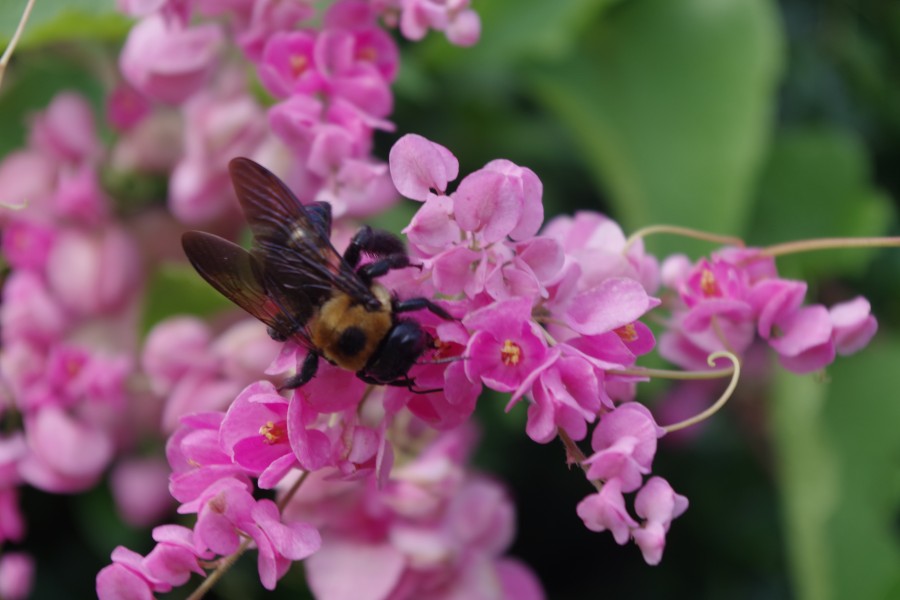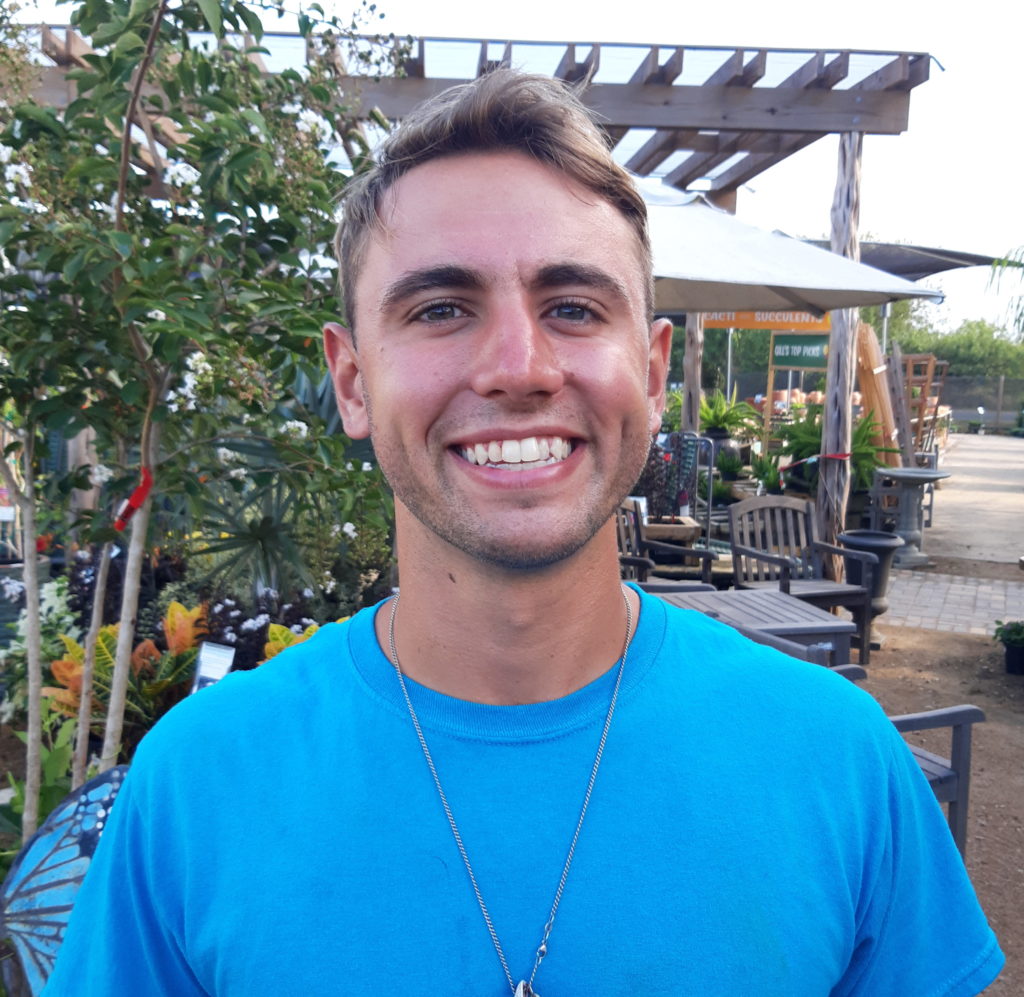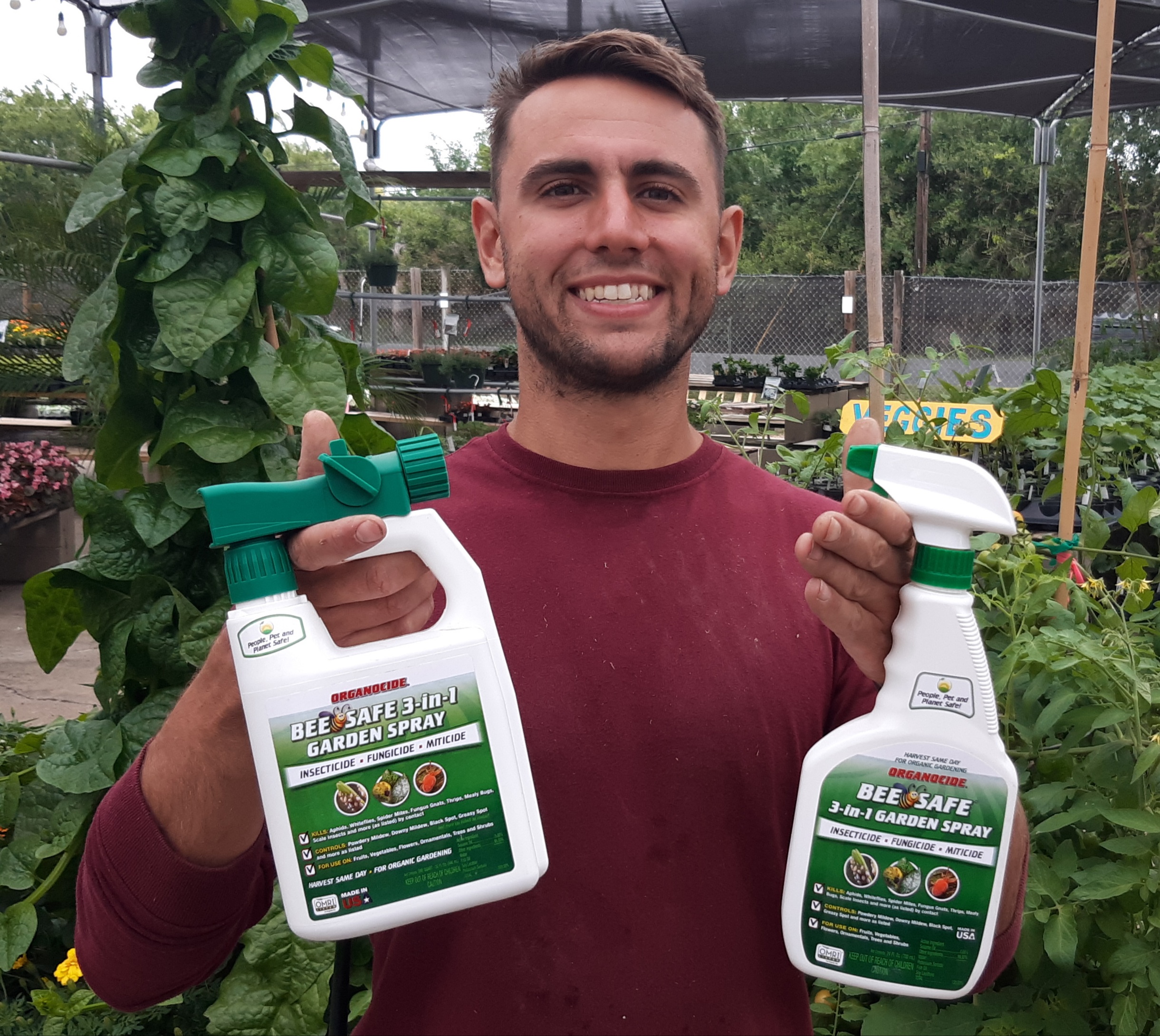I always make it a point to garden in a way that works with nature and promotes life. Using the least toxic products when I have a problem or a pest in the garden is a big part of that equation. All pesticides and fungicides are killers, organic or not, so it is important to choose a product that is selective in what it kills. Bee Safe 3 in 1 Garden Spray is relatively new here at Gills and has quickly become one of my favorites for a few reasons:
- It works. I use Bee Safe to treat aphids, mealy bugs, and powdery mildew with great success. It is also labeled for spider mites and fungal issues like black spot on roses – hence the name “3 in 1”.
- Bee Safe is not a kill all. Bee Safe will not harm bees, butterflies, or hummingbirds. This is important because pollinators play a critical role in a healthy thriving garden.
- It’s totally organic. Bee Safe is OMRI certified for organic gardening. The active ingredients are sesame oil and fish oil, which are very safe to use around your pets, your family, and the bees! It is also labeled for “same day use” which means you can spray your veggies and eat them in the same day. I’d still recommend washing them of course. And keep in mind that Bee Safe is an oil-based insecticide, which means you should spray it in the evening to avoid burning.

Promoting life in the garden is the best way to prevent pests in the first place. Make sure you are attracting pollinizers (like bees, birds, and butterflies), promoting beneficial insects, and adding compost to encourage healthy microbial activity in the soil. All these living things will work together to maintain healthy plants which are not as susceptible to pests.

-Wyatt



Kim says
I’m still getting aphids even with this treatment. Suggestions? Spraying at night.
James Gill says
Yes you are still getting aphids! When I talk to customers, I tell them an aphid is BORN PREGNANT, with an embryonic aphid that is ALREADY PREGNANT! So their reproductive capability is crazy fast. You can kill all your aphids and by the end of the week be reinfested with a whole new horde of aphids! During aphid season, just expect that you can kill them but they will come back. I always inspect my aphid infestation looking for beneficial insects that may help control.
If ladybug or lacewing larvae are present (look them up), or I see puffed up brownish aphids that are wasp parasitized, then I don’t spray in hopes the beneficial predators will increase and control the aphids. But if I don’t see beneficials, I spray, and Bee Safe is good because if beneficials show up later, they won’t be harmed. Many aphids will be on the underneath of the leaves, so be sure to spray upwards also. And then check again a week later, while we are in spring aphid season!
Debra Welch says
with the recent heavy rains which occurred after we had fertilized in april, do we need to refertilize to replace washed out nitrogen now? Thanks.
James Gill says
Another fertilization this spring will be appropriate, anytime now until mid-June. Then again mid-September to mid-October.